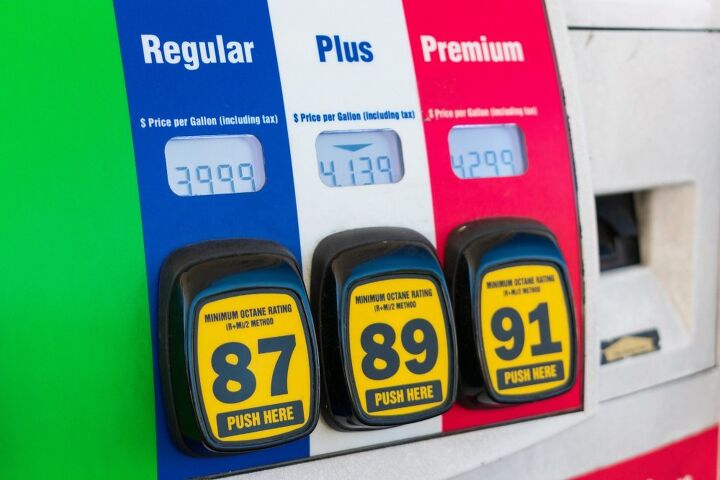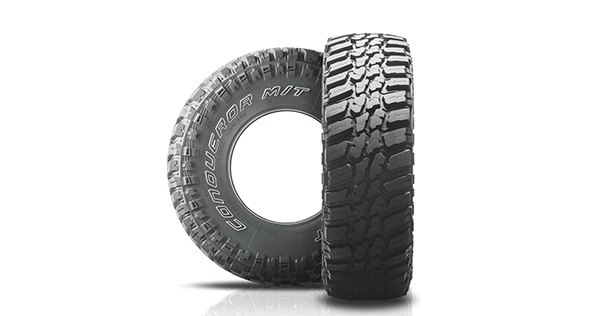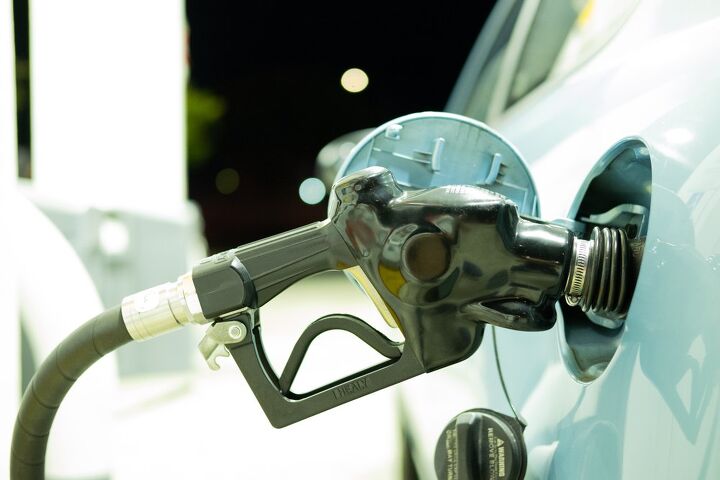#TrumpAdministration
How Much Are Updated CAFE Standards Actually Going to Save You?
With the United States Department of Transportation having formally announced upgraded Corporate Average Fuel Economy (CAFE) standards starting in 2024, the Biden administration was quick to point out that the decision would likely make automobiles even more expensive than they already are. However, the caveat to this was that it also assumed fuel prices would come down as improved efficiencies reduced North America’s hunger for fuel.
This effectively undoes fueling rollbacks instituted under the Trump administration on the grounds of reducing costs to consumers and cutting regulatory red tape for a prospective future where fuel prices are reduced without the need to spur oil production. But what does that actually mean in terms of dollars and cents?
U.S. EPA Readies Strictest Vehicle Emission Requirements Ever
We’ve got good news for people who want fewer choices in the type of cars they’ll be able to purchase in the future.
The U.S. Environmental Protection Agency (EPA) has finalized strict new vehicle emissions requirements through 2026 that would reverse the current standards set by the agency under former President Donald Trump. The Trump administration rolled back some of the long-term environmental policies implemented under the Obama administration. However, the Biden administration has said its biggest focus will be on addressing climate issues by dissolving those policies restoring the targets established when Barack Obama was still in the White House. The agency released some proposals in August outlining the general path it would be taking. But the details dropped by EPA Administrator Michael Regan on Monday vastly exceed those Obama metrics serving as a benchmark.
California Wins the Gas War, Fickle Automotive Coalition Realigns Position
The Coalition for Sustainable Automotive Regulation (CSAR) is officially withdrawing from a lawsuit between California and federal authorities over the coastal state’s ability to establish its own emissions standards. California leadership had vowed to ignore the Trump administration’s proposed rollback and began making binding side deals with automakers (specifically BMW, Ford, Volkswagen, Volvo, and Honda) committed to adhering to the aggressive limits established under President Obama. Unfortunately, this ran the risk of undermining the revised national standards penned shortly after the United States became energy independent. It also set up the CSAR to embrace any entity that had views conflicting with California Air Resources Board.
Federal concerns were that the Golden State setting its own targets would butt heads with the relaxed national benchmarks and ultimately divide the U.S. market and may even influence the types of vehicles that were manufactured for all of North America. But the issue became moot once President Biden broke the record for executive orders by signing 22 in his first week. Predictably, the brunt of these were designed to instantly undo any actions taken throughout the duration of the Trump administration and included one directing the Department of Transportation and EPA to reconsider the 2019 decision to remove California’s authority to limit tailpipe emissions by April and revise the fuel-efficiency standards for automobiles by summer.
Tires Made in Southeast Asia Will Be More Expensive
Tires from South Korea, Taiwan, Thailand and Vietnam are about to get more pricey, as the U.S. Department of Commerce (DOC) announced yesterday preliminary duties in the antidumping duty (AD) investigations of passenger vehicle and light truck tires from those countries.
Justice Department Subpoenas Automakers Over California Emissions Pact
The Justice Department has issued civil subpoenas to the four major automakers’ that voluntary agreed to adopt a Californian compromise on vehicle emission requirements. The antitrust investigation seeks to determine whether or not BMW, Ford, Honda, and Volkswagen were in violation of federal competition laws by agreeing with each other to adhere to stricter emissions standards penned by California.
With the Trump administration working for years to roll back emissions standards, California has been doing everything in its power to maintain its ability to self-regulate and gain support for higher emission standards. Under the agreement with the Golden State, the companies promised to meet annual emission improvement targets of 3.7 percent and defer to the state’s authority to set its own emissions standards.
Report: Trump Administration Seeks to Soften Fuel Economy Rollback
One of the issues underpinning the gas war has been an inability for either side to compromise. Initially, it was the current administration complaining about California wanting special treatment. But the coastal state was quick to return fire, claiming that the White House never offered a valid compromise.
Eventually California extended an olive branch by suggesting it would postpone existing fuel economy mandates by one year, while attempting to lock automakers in via written commitments. But federal regulators said a singular national standard was needed, suggesting California had overstepped its authority by trying to rope in manufacturers.
However, EPA Administrator Andrew Wheeler came back this fall with claims of a revised plan that could actually be more stringent than originally presumed. While still a rollback, the new draft was said to close several loopholes the industry could use to continue their polluting ways. “In some of the out years, we’re actually more restrictive on CO2 emissions than the Obama proposal was,” Wheeler said.
New reports now suggest the EPA’s words are more than just noise.
Battle Lines Are Being Drawn in America's Gas War
Ford Motor Co, Honda Motor Co, BMW Group and Volkswagen AG announced a voluntary deal with California in July — drawing a line in the sand for who they’ll be supporting in the fueling fracas taking place between the Golden State and White House. Meanwhile, the Trump administration’s rollback proposal — which intends on freezing automotive emission standards at 2020 levels through 2026 — saw no such support. But the cavalry seems to have finally arrived after sitting on the sidelines during the battle’s opening maneuvers.
General Motors, Fiat Chrysler Automobiles, Toyota, Mazda, Nissan, Kia, and Subaru all sided against California in a filing with a U.S. appeals court from Monday night. While they’re not setting any economy targets, they are collectively firm on the issue of the state’s ability to self regulate. A large portion of the industry wants a single national standard, not individual states setting their own benchmarks while they attempt to catch up with product.
Gas War: California Sues Over State-based Emission Standards
On Friday, California and 23 other states filed a lawsuit against the Trump Administration over efforts to reverse state-driven emissions standards. Earlier this week, the president confirmed speculation that the federal government would be taking steps to revoke California’s fuel waiver — making the suit about as predictable as the setting sun.
We’ve told the story countless times. The Golden State wants to maintain stringent emission laws for automobiles, the Trump administration wants a fuel rollback, and automakers want a universal national standard. After months of nonproductive talks and all sides attempting to make their case to the public, it looks at though the Supreme Court will have the final say.
U.S. Trade Head to Meet With UAW This Week Over New Trade Deal
U.S. Trade Representative Robert Lighthizer will be in Michigan this week to meet with union leaders from United Auto Workers in a bit to gain their approval for the Trump administration’s new North American free trade deal. Lighthizer is scheduled to meet with union officials in Dearborn on Tuesday to answer questions about the United States-Mexico-Canada Agreement (USMCA) while simultaneously drumming up support.
The USMCA deal suggests increasing existing requirements for North American content for vehicles, stipulating that 40 percent of a vehicle’s overall content be manufactured in areas paying at least $16 an hour, while also encouraging Mexico to tailor its labor rules to allow unions to wield legitimate collective bargaining powers.
Trade War Watch: Were the Auto Tariffs Ever Supposed to Be More Than a Threat?
The U.S. Commerce Department has submitted draft recommendations to the White House on its investigation into whether it’s prudent to impose tariffs of up to 25 percent on imported automobiles and parts, based on the premise that they’re a threat to national security. The possibility has the industry in a tizzy, with both foreign and domestic brands lobbying against it.
Truth be told, we half assumed the entire concept was a ruse to bring other nations to the bargaining table with something to lose — a scenario where the United States could be viewed as a favorable alternative to tariff-crazy China. However, China has begun opening its market to foreign automakers while also placing a massive 40 percent duty on American autos, leaving the U.S. at a disadvantage. Now it looks as if the Trump administration may go through with everything.
Pence Meets With Automakers Annoyed by NAFTA Changes
The automotive industry is wary of any changes that might be made in regard to the North American Free Trade Agreement. Fortunately for them, little progress has been made during the last few months of negotiations. But that doesn’t create an assurance that changes aren’t still en route. So, manufacturers and suppliers have banded together via various trade groups to voice their opinion on how to best handle NAFTA.
Meanwhile, the Trump administration has attempted to make itself appear friendly to the automotive business. Continuing these efforts, Vice President Mike Pence has met with General Motors CEO Mary Barra, Fiat Chrysler’s Sergio Marchionne, Ford North America President Joe Hinrichs, and a handful of other top-tier auto executives.
Washington D.C. and California Square Off for Years of BS
President-elect Donald Trump’s pick to head the Environmental Protection Agency, Oklahoma Attorney General Scott Pruitt, said he plans to review the Obama administration’s recent decision to secure fuel efficiency standards through 2025.
Last week, outgoing EPA administrator Gina McCarthy bumped up the timeline for the final determination on the fuel efficiency rule in the hopes of maintaining the Obama administration’s climate legacy.
“It merits review and I would review that,” Pruitt said at yesterday’s Senate confirmation hearing. Later that same day, Pruitt confirmed that he would not permit California to continue operating under its own rules as part of its 2009 advanced clean cars program and zero emission vehicle mandates.
As predicted, California isn’t interested in being told what to do.


























Recent Comments